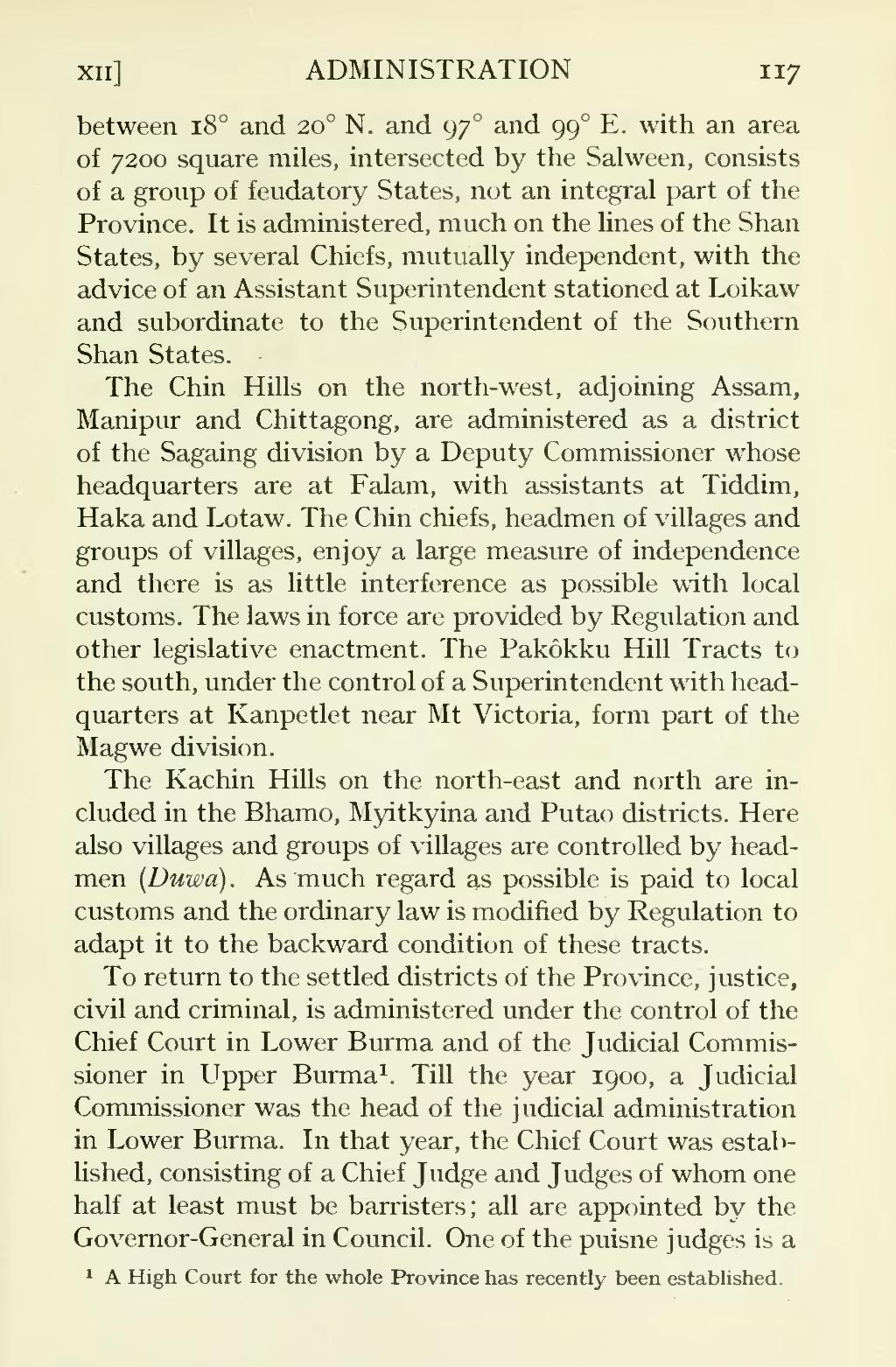between 18° and 20° N. and 97° and 99° E. with an area of 7200 square miles, intersected by the Salween, consists of a group of feudatory States, not an integral part of the Province. It is administered, much on the lines of the Shan States, by several Chiefs, mutually independent, with the advice of an Assistant Superintendent stationed at Loikaw and subordinate to the Superintendent of the Southern Shan States.
The Chin Hills on the north-west, adjoining Assam, Manipur and Chittagong, are administered as a district of the Sagaing division by a Deputy Commissioner whose headquarters are at Falam, with assistants at Tiddim, Haka and Lotaw. The Chin chiefs, headmen of villages and groups of villages, enjoy a large measure of independence and there is as little interference as possible with local customs. The laws in force are provided by Regulation and other legislative enactment. The Pakôkku Hill Tracts to the south, under the control of a Superintendent with headquarters at Kanpetlet near Mt Victoria, form part of the Magwe division.
The Kachin Hills on the north-east and north are included in the Bhamo, Myitkyina and Putao districts. Here also villages and groups of villages are controlled by headmen (Duwa). As much regard as possible is paid to local customs and the ordinary law is modified by Regulation to adapt it to the backward condition of these tracts.
To return to the settled districts of the Province, justice, civil and criminal, is administered under the control of the Chief Court in Lower Burma and of the Judicial Commissioner in Upper Burma[1]. Till the year 1900, a Judicial Commissioner was the head of the judicial administration in Lower Burma. In that year, the Chief Court was established, consisting of a Chief Judge and Judges of whom one half at least must be barristers; all are appointed by the Governor-General in Council. One of the puisne judges is a
- ↑ A High Court for the whole Province has recently been established.
